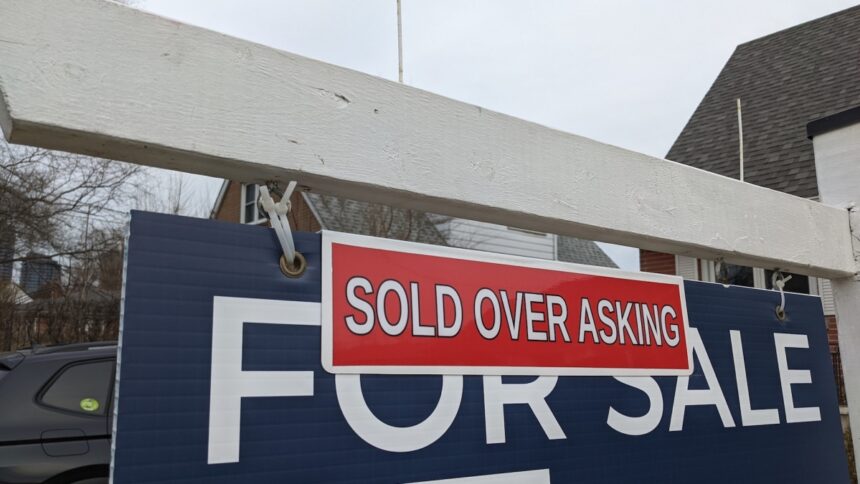Decoding the Challenges of Selling Your Home: Beware of Scams
Putting a house on the market can often lead to significant frustration. One of the primary hurdles is the duration; statistics indicate that the typical home sells in roughly two months, but this timeframe can stretch significantly based on market conditions among other influences. Another concern is pricing; although many areas may experience high demand, a substantial portion of sellers find it necessary to lower their listed prices. When the market does not align with your financial expectations, the experience can quickly turn burdensome.
These frustrations may lead you to consider unwise options such as selling to an iBuyer or acting on an unsolicited “we buy houses” offer. However, even if you remain skeptical of these impulses, there is still a risk of being deceived during the home-selling process—particularly when someone proposes an offer that exceeds your asking price. Indeed, the current market is competitive, with 58% of real estate agents confirming their clients have outbid others. Nevertheless, sometimes an overly generous offer is merely a façade to distract you from a potential scam that could deplete your finances.
Beware of ‘Administrative Fees’
In a moment of despair while attempting to sell your house, you might receive a call from an individual promising a fantastic price, potentially exceeding your expectations. Their proposal often includes a request to provide a small administrative fee to initiate the paperwork. Selling a property incurs numerous legitimate expenses; thus, this request might not instantly raise red flags. However, caution is advised—this situation frequently indicates a potential scam aimed at extracting that fee before vanishing. While the attractive offer may dazzle you, an inquiry into the formal offer will likely reveal that the “buyer” has disappeared.
The Pitfall of Cash Back Requests
This scenario can be complex: you receive a bid that exceeds your asking price, laden with contingencies, one of which mandates that your home must appraise at a value higher than the offered price. In this case, the buyer takes a loan based on the appraised value, completes the purchase, and then asks you to return the difference between the appraised value and your sale price, or proposes to split this extra cash.
For instance, if an offer of $300,000 is conditional on an appraisal of $350,000, the buyer could secure a loan for the higher amount and ask for $50,000 back. This situation represents straightforward fraud. While it might seem advantageous at first, signing off on a fraudulent loan can lead to serious repercussions later.
Risks Associated with Cashier’s Checks
A prevalent warning sign in various financial scams is the use of a cashier’s check. Although these checks serve legitimate purposes, they are often exploited in scams due to the significant delay between your deposit and the funds being cleared. Although funds from cashier’s checks are generally available within 24 hours, the actual processing can take considerably longer.
One prevalent scam related to home sales involves a “buyer” who expresses overwhelming interest in your property and promises an offer exceeding the asking price, locking in the deal with a cashier’s check for earnest money. You might receive a (counterfeit) check for a sum larger than agreed, say $15,000 instead of $10,000. The buyer claims it’s a mistake and requests your return of the excess. When the check bounces after you’ve sent back the difference, your bank will deduct that amount from your account, leaving you without your refund.
Red Flags: Overcommunication
An indication that an offer could be fraudulent is when you receive a flood of communication and excessive information. Scammers may inundate you with documents such as financial statements, letters from their bank, and other details to convince you of their financial capability—often information you didn’t request and likely sourced directly from them rather than a financial institution or real estate professional. Coupled with numerous urgent texts, calls, and emails, this strategy aims to overwhelm you.
The intent is twofold: to prevent you from conducting actual due diligence, as they already provided all necessary information, and to coerce you into hastily concluding a questionable deal.
Suspicious Charges
Typically, the buyer and seller have established responsibilities regarding the payment for different services and fees in a property sale. If a prospective buyer dangles an enticing offer but attempts to shift unusual fees onto you, take heed.
For instance, in a standard sale, the buyer pays for their wanted home inspection. Should the buyer insist that you handle the payment for their designated inspector, be wary. After you pay the inspection fee, it’s not uncommon for both the buyer and the inspector to disappear entirely. Should a buyer eagerness for your property exceed your expectations and insist on covering minor fees, it serves as a warning sign. Such tactics often exploit the sunk cost fallacy, keeping you attached to the offer when your intuition might otherwise scream to reconsider.












